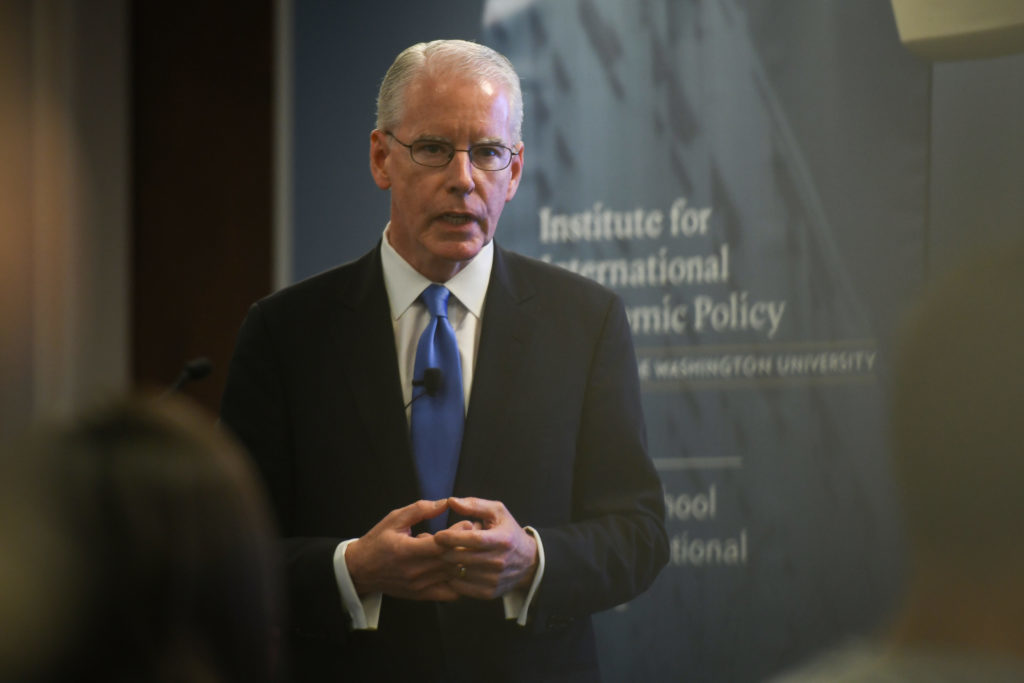A top officer at the technology company IBM gave a presentation at the Elliott School of International Affairs Monday discussing the future of artificial intelligence in the workforce.
The event, which featured Martin Fleming, the chief analytics officer and a chief economist at IBM, was the last installation of the Institute for International Economic Policy’s 10th-anniversary speaker series, which ran throughout this academic year. Previous speakers included Louise Fox, a chief economist at the United States Agency for International Development and Bob Koopman, a chief economist at the World Trade Organization.
Fleming began the event by describing artificial intelligence’s increasingly important role in modern society – and its ability to structure typically unstructured data and make predictions about the future.
He added that many forms of AI can improve productivity without killing human jobs – one of the most common fears about expanding robotics in the workforce. He pointed to technologies like predictive typing and the traffic navigation mobile application Waze as examples of AI augmenting human productivity without taking jobs from people.
“The simplest example is quick type, on your phone, when you’re typing a text or an email and it tells you what the word is you’re trying to type — that’s an artificial intelligence application,” he said. “Didn’t cost anybody any jobs but made us all quicker and faster at typing emails and typing texts.”
Fleming said that in some cases, increased technology can actually save and create jobs instead of replace them.
He said ATMs eliminated the need for bank tellers to conduct financial transactions – but this change actually led to a proliferation, rather than reduction, in the number of bank branches because physical branches became cheaper to maintain with ATM technology.
Fleming added that as the desire and need for artificial intelligence increases, education is key in taking advantage of future technological developments.
“We need to think about education in a fundamentally different way for the skills that are going to be necessary as technology races ahead,” he said.
Throughout the presentation, Fleming stressed that the spread of AI and technological development will be monumental and disruptive, likening the movement to previous eras like the educational reform movements at the turn of the 19th century and the Industrial Revolution.
“If I came in and gave this presentation in 1918 and said a hundred years from now, 2 percent of the labor force is going to be in the agriculture sector, and, by the way, people are going to be better fed, be healthier and live longer and have a higher standard of living, they’d say this guy’s crazy,” Fleming said. “But that’s exactly what has transpired. The ability to imagine the future is one that is always a limitation.”





